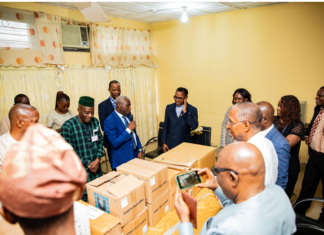The general election just concluded in India, the world’s biggest democracy, has important lessons for us here in Nigeria. With pivotal elections, including the Presidential elections, due to be held next year it should.
Worthy of note is that the losing incumbent government party was quick to concede defeat. We commend the badly beaten Congress Party for doing so. Here at home, it would have been different. We would have been put through the asinine claptrap of “no vacancy in government house” as starters; this would have been followed by the mendacity of “we no go gree.”
It is also worthy-of-note that the election was the largest ever held in the world. A total of 8,251 candidates contested for the 543 Lok Sabha (Federal House of Representatives) seats. The elections were staggered over nine phases and turnout was approximately 66.38 per cent, the highest ever in the history of Indian general elections. Do we now consider the pros and cons of staggered elections?
What does all of this mean to us? Well, it shows for a start that you do not need the intellect of a rocket scientist to conduct an acceptable election. What you need is the managerial capacity. It is this managerial sagacity that is so clearly lacking here. For enlightenment, recall the flawed elections in Delta central senatorial district and the Anambra governorship election.
From what we saw in India and earlier on in the elections in the Republic of South Africa, there is something profoundly amiss here. Our INEC simply has to get grips with the issue of logistics. “Late arrival of election materials” has now become a standard refrain here. That this is so, highlights the inadequacy of our “semi-democracy” with all due apologies to The Economist.











